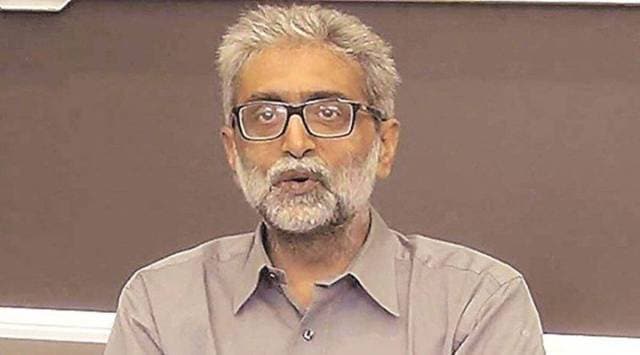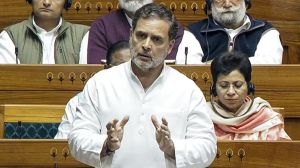Reasonable grounds for believing accusations about Gautam Navlakha being CPI-Maoist member: Court
Navlakha was arrested on April 14, 2020, by the NIA and has been under house arrest since November 2022.
 Gautam Navlakha
Gautam Navlakha IN ITS detailed order rejecting bail to 69-year-old Gautam Navlakha in the Elgaar Parishad case, the special court in Mumbai has said there is prima facie evidence of a nexus between him and Syed Gulam Nabi Fai, who was convicted by a US court in 2012 for links with Pakistani spy agency ISI. The court said there are reasonable grounds for believing accusations against Navlakha, including that he is a member of the banned organisation Communist Party of India (Maoist).
Navlakha was arrested on April 14, 2020, by the NIA and has been under house arrest since November 2022. His bail application was rejected by the court on April 6. The detailed order was made available on Thursday. The special court had last month heard the bail plea afresh after orders from the Bombay High Court. It had previously rejected Navlakha’s bail plea in September 2022.
In its 39-page order, Special Judge Rajesh Katariya has considered the submissions made on behalf of the NIA by Special Public Prosecutor Prakash Shetty, based on letters and electronic evidence seized from the accused arrested in the case. The court said that while it was argued that Navlakha was 69 years old, suffering from various ailments and had no criminal antecedents, in view of the seriousness of the allegations against him, the ‘collective interest of the community’ outweighs these grounds.
Shetty had said that Navlakha had written to the Judge of the US court, seeking clemency for Fai. The NIA said Navlakha had visited the US thrice to address the ‘Kashmiri American Council’ organised by Fai and was in touch with the separatist leader. It referred to a document pertaining to the sentencing of Fai, which was claimed to have been found at the behest of Navlakha.
Navlakha’s lawyer, Shifa Khan, had opposed the NIA’s contention, stating that there was no hash value provided at the time of seizure of the electronic evidence, and hence it was not reliable.
The NIA also relied on a document titled ‘A report on Gautam Navlakha (GN)’, alleged to have been recovered from lawyer Surendra Gadling, another accused in the case. Khan said the document showed Navlakha’s criticism of left-wing extremism and violence, and that the banned Maoist party had a “deep hostility” towards him and considered him to be an agent of the Indian government.
“Though there appears to be some deviating conduct on part of the applicant as pointed by learned advocate for applicant from report on Gautam Navlakha and other documents discussed above, same cannot grant any benefit to applicant for bail,” said the court.
The NIA also referred to Navlakha being part of fact-finding missions, claiming that it was “to mislead public showing that innocent persons are encountered by government machinery…”.
“The applicant is alleged to have acted as a member of the fact-finding committee for organisation. It also shows that he underwent weapon training with other accused,” said the court.







